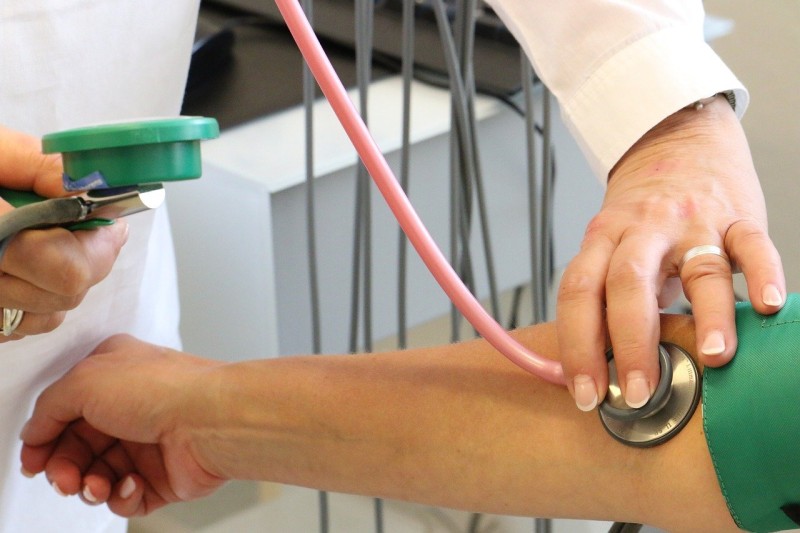Chronically high blood pressure (hypertension) can eventually lead to health problems, including heart disease, because of the long-term strain the blood exerts against the artery walls. Many questions are associated with high blood pressure, and out of which an important one is the “Can I Travel with high blood pressure?”. While traveling on the plane, many slight changes occur in our bodies due to the difference in the external pressure. Moreover, traveling on the train also affects blood pressure, which is different from air traveling changes. Therefore, our focus is on the changes in blood pressure while traveling and how you can handle these.
Traveling with High Blood Pressure
Although having high blood pressure should not prevent you from traveling, it is always a good idea to consult with your doctor before making any travel arrangements. Flights and travel should be acceptable for you if your high blood pressure is controlled with medication. Just make sure you take the proper measures before you do so.
You should meet your doctor before making any travel arrangements, but if you have high blood pressure and are well controlled with medication, you will likely be fine to fly. Traveling by plane may be a stressful experience in and of itself, with long lines, security checks to complete, and tight deadlines. If you are traveling by plane, attempt to be at the airport in plenty of time to minimize the tension that may be experienced. If you have an early departure, it may be worth your while to consider staying the night before at an airport hotel.
Hotel options are plentiful and can accommodate any budget; nevertheless, it is recommended that you book a hotel that is close to the terminal you will be using. Spend plenty of time to get through security, and pack extra medication in your carry-on along with a prescription in case your tablets go missing, or you require additional medication while traveling.
Flying with High Blood Pressure? Here's Some Help!
The majority of persons with high blood pressure can still fly if they take all appropriate health and safety precautions. This is what I'm talking about:
- Avoiding anxiety and stress at the airport and while traveling can be accomplished by using relaxation techniques such as deep breathing or meditation.
- It would be best if you always kept a supply of medication in your carry-on bag if you needed to reschedule a dose.
- If you're flying for an extended period, wear compression socks, get up and walk around frequently, and practice DVT-prevention activities.
- Bring salty snacks and drink to avoid dehydration and hypoxia.
- Before and during the flight, refrain from consuming any alcoholic beverages.
- Your travel insurance should cover pre-existing medical issues such as high blood pressure for extra security and protection in the case of an emergency.
What situations should you avoid while traveling if you have high blood pressure?
It would be best if you generally traveled as long as your blood pressure was under control. If you have any doubts about your ability to travel, speak to your doctor.
Exactly what are the various blood pressure readings indicating?
- Blood pressure less than 120/80 is considered normal.
- You have hypertension if the blood pressure is between 120 and 140 millimeters over 80 mm Hg.
- You have high blood pressure if your blood pressure is 140 over 90. Your doctor should be consulted.
- If your systolic blood pressure is above 120/80, you should visit a doctor before traveling.
Conclusion
High blood pressure is referred to as the silent killer, and while traveling, you should have some preparations if you have high blood pressure. It is better to talk to the Doctor before you fly for convenience. You can have instant help from the online doctors available at Marham.pk. Here, you can book an appointment with the Cardiologist doctor in Lahore for the call, video meeting, or physical meeting at their clinic
Frequently Asked Questions (FAQs)
1. Is flying a risk factor for a rise in blood pressure?
Hypoxaemia can occur even in a pressurized aircraft cabin at extremely high altitudes (low oxygen concentration in the blood). If you have heart disease or heart failure, this may not be felt by most people, but it can have a significant impact on your health.
2. Is it possible to bring a blood pressure monitor?
Definitely in your carry-on bag. Taking a blood pressure reading on a plane has no advantage (unless you have been advised to do so under exceptional circumstances by your doctor). It's essential to call the airline ahead of time to be sure you can bring one on board if your doctor says you must.
3. Is it allowed to fly with high blood pressure?
High blood pressure must be treated with medication before you go for your safety, as far as we know. To put it another way, if your blood pressure is continuously above 140/90 mmHg, you need to take action to lower it.
To choose health related blogs the number one category comes into mind is Skincare Write For Us category at Business Glimpse.

